Department News
[Seoul Economic Daily] Interview with Prof. Emeritus Woo Il Lee - "Science and Technology Has Been Too Politicized… Strategies
Author
관리자
Date
2020-12-23
Views
661
"Science and Technology Has Been Too Politicized… We Need Better Strategies for ‘Pax Technica’"
Dr. Woo Il Lee, President of KOFST
Professional opinion is not reflected well in government policies including COVID-19 responses
Main positions are filled without consensus from the scientific community
Government R&D split into mediocre articles and patents
Loonshot and venture capital policies needed for more innovation
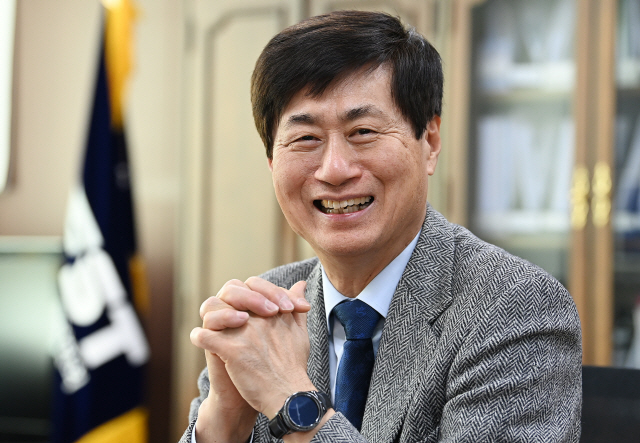
Dr. Woo Il Lee, President of the Korean Federation of Science and Technology Societies, during an interview with Seoul Economics Daily at the Institute of Science and Technology Center in Yeoksam-dong, Seoul Dec 21st. “The science and technology-oriented philosophy of President Roh era has disappeared,” he said. /by Seung-hyeon Oh
“The Roh administration talked about a science and technology-oriented society. Now, in Pax Technica, scientific technologies lead social change, yet the scientific community does not receive much attention. The government R&D system should have the capacity and culture to encompass even seemingly outrageous research, but rigid management is blocking innovations.”
“Government affairs do not reflect opinions of the scientific community, as you can see in the COVID-19 responses,” said Dr. Woo Il Lee, President of the Korean Federation of Science and Technology Societies, during an interview with Seoul Economics Daily at the Institute of Science and Technology Center in Yeoksam-dong, Gangnam-gu, Seoul Dec 21st. He stated that politicians tend to regard scientific technology as a means to economic development, and the government remains inflexible in its management of R&D funds (KRW 27.02 trillion next year), making innovation difficult. He believes that the government must demonstrate its trust in the scientific community and listen to their input.
“During numerous COVID-19 forums organized by KOFST, we proposed measures for critical patients to expand sickbeds, yet they were not widely accepted,” said President Lee. “Just as the government consults with the bar association and medical association in legal and medical matters, they must also listen to the scientific community including KOFST regarding science and technology.”
“Government affairs do not reflect opinions of the scientific community, as you can see in the COVID-19 responses,” said Dr. Woo Il Lee, President of the Korean Federation of Science and Technology Societies, during an interview with Seoul Economics Daily at the Institute of Science and Technology Center in Yeoksam-dong, Gangnam-gu, Seoul Dec 21st. He stated that politicians tend to regard scientific technology as a means to economic development, and the government remains inflexible in its management of R&D funds (KRW 27.02 trillion next year), making innovation difficult. He believes that the government must demonstrate its trust in the scientific community and listen to their input.
“During numerous COVID-19 forums organized by KOFST, we proposed measures for critical patients to expand sickbeds, yet they were not widely accepted,” said President Lee. “Just as the government consults with the bar association and medical association in legal and medical matters, they must also listen to the scientific community including KOFST regarding science and technology.”
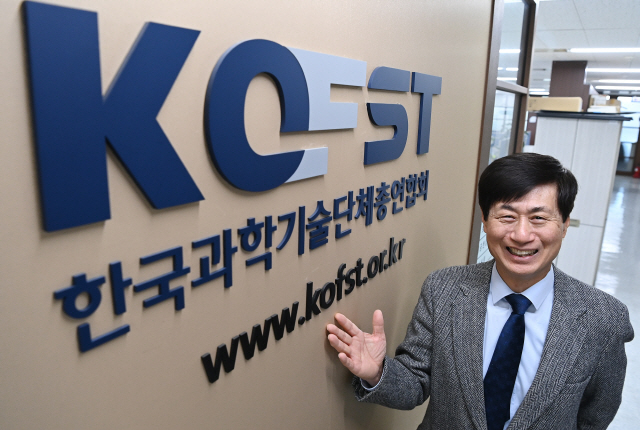
-It is said that people’s trust in the scientific community is low.
△Last September, Pew Research Center—an American polling organization—conducted a worldwide survey of 32 thousand people in 20 countries public confidence in the scientific community. The Korean people’s trust in scientists were at 14%,e of the lowest among 20 countries. It was higher than other professions such as business leaders, but still low compared to other countries. We lack trust in each other. In terms of political affiliations, progressives tended to have twice as much confidence in scientists as conservatives in foreign countries such as US and Canada. Korea did not show such differences.
-Is that why opinions of the scientific community remain unheard by the government?
△Indeed. KOFST has held a total of 20 COVID-10 discussions. Since the March outbreak in Daegu-Gyeongbuk area around Shincheonji believers, we have continuously called for preemptive measures, but nothing has changed. Even when they are forming science and technology committees, the scientific community does not get heard. There used to be lots of talks about a science and technology-oriented society under President Roh, but now such discussions have decreased significantly. The scientific community has also been negligent in communicating with the public. But the whole society suffers when scientists and engineers go unheard.
-Any other predicaments in the scientific community?
△While embezzlement of research funds should be punished accordingly, such wrongdoings committed by a small number of scientists are often seen as representative of the entire scientific community. Also, there is a lack of regulations overseeing technology transfers from universities and institutes to companies. For example, if you transfer a certain technology at 10 million won and its value reaches 100 billion won after 5 years, you could be charged for malpractice. Recently, a KAIST professor is being put trial, accused for transferring core technology to China and participating in ‘Thousand Talents Plan.’ Such issues receive attentionly when there are other problems tied to it like US-China economic tensions.
△Last September, Pew Research Center—an American polling organization—conducted a worldwide survey of 32 thousand people in 20 countries public confidence in the scientific community. The Korean people’s trust in scientists were at 14%,e of the lowest among 20 countries. It was higher than other professions such as business leaders, but still low compared to other countries. We lack trust in each other. In terms of political affiliations, progressives tended to have twice as much confidence in scientists as conservatives in foreign countries such as US and Canada. Korea did not show such differences.
-Is that why opinions of the scientific community remain unheard by the government?
△Indeed. KOFST has held a total of 20 COVID-10 discussions. Since the March outbreak in Daegu-Gyeongbuk area around Shincheonji believers, we have continuously called for preemptive measures, but nothing has changed. Even when they are forming science and technology committees, the scientific community does not get heard. There used to be lots of talks about a science and technology-oriented society under President Roh, but now such discussions have decreased significantly. The scientific community has also been negligent in communicating with the public. But the whole society suffers when scientists and engineers go unheard.
-Any other predicaments in the scientific community?
△While embezzlement of research funds should be punished accordingly, such wrongdoings committed by a small number of scientists are often seen as representative of the entire scientific community. Also, there is a lack of regulations overseeing technology transfers from universities and institutes to companies. For example, if you transfer a certain technology at 10 million won and its value reaches 100 billion won after 5 years, you could be charged for malpractice. Recently, a KAIST professor is being put trial, accused for transferring core technology to China and participating in ‘Thousand Talents Plan.’ Such issues receive attentionly when there are other problems tied to it like US-China economic tensions.

-In the end, a society that lacks trust harms everyone.
△ In a survey conducted by the Korea Foundation for the Advancement of Science and Creativity of adults aged 19-69 and youths aged 13-18 about their interest in science and technology, adults’ score was 39.2 out of 100 while youths’ was at 47.2. The decreasing confidence and interest is why there is a lack of continuity in leadership positions and committees in the field of science every time the administration changes. Things change without any input from the scientific community. If we look at presidential or prime ministerial committees, unlike legal or medicales, scientific organizations such as KOFST do not possess the right of recommendation. These organizations continue even when the administration changes, but the leadership positions are too quick to get filled without talking with the scientific community. The scientific community often ends up thinking ‘they must be good at politics’ upon hearing the news. Unlike the legal or medical community, the scientific community do not receive larger profits when they get promoted.
-The national R&D ecosystem does not allow for dramatic innovations.
△Like in the book Loonshots by Safi Bahcall, a physicist and founder of a biotech company, we must embrace so-called crazy ideas that everyone else ignores and neglects. We must learn to allow all sorts of weird, outrageous ideas. Innovation will not take place under the kind of strict, unitary regulations for government R&D—which is why it gets criticized for spending all that money without delivering results. Although it is not stipulated, a 100 million won funding from the government must result in an SCI-level article and a patent. This kind of regulation prevents innovation.
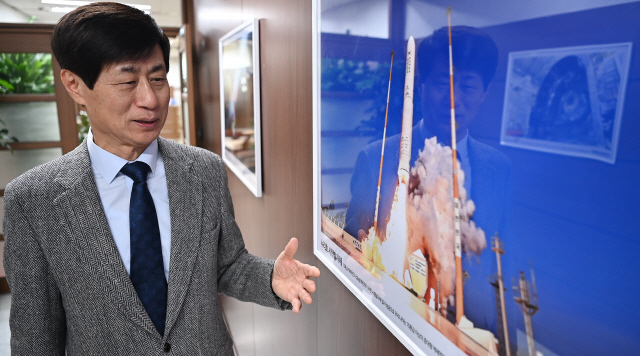
-More diversity leads to more innovation.
△That is the most important point. Foreign universitiesly consider published journal articles regarding employment and promotion. The blue skies research at Bell Labs in US doesn’t ask you to do anything. You can just zone out staring at the sky. But our standard for research funds is the same for every research. It makes people “split up” journal articles and patents, excessively multiplying the number of “empty” patents. This is the reality of universities and government-funded institutes. Now, for the next couple of years, we have to make bold investments with government R&D funds and worry less about creating profit. In Japan, they don’t care about what professors do with their research funds. As long as they don’t embezzle it, they are free to use it however they want for research activities. Shuji Nakamura received the 2014 Nobel Prize for Physics for inventing blue light-emitting diodes at Nichia Corporation. An individual like him canly come from that kind of environment. We have to stop approaching scientific activities like a military strategy.
-The radar, which shifted the course of World War II, was also a case of an innovative ‘loonshot.’
△ When the idea of a radar first came out, the US military worried about wasting their funds. But Vannevar Bush, who founded the National Science Foundation (NSF) and served as its director, was able to convince President Franklin Roosevelt. Before the war, he proposed the establishment of the Office of Scientific Research and Development (OSRD). He also suggested the Manhattan Project, which led to the development of the radar and the atomic bomb. Although the American military at the time underestimated the power of science and technology, they were able to win the war via radar, cryptography, increased industrial production, and the Battle of Midway—all of which were results of scientific development.
-Politicians in Korea do not share such awareness about science and technology.
△Politicians are the same in any country; science and technology is regarded as a means to an end. Especially in Korea, they focus how it can be used for economic development. However, these days, scientific technology is what leads social change. Dealing with the pandemic ultimately depends the vaccine. AI, bio, robot – these are all “game changer” technologies that can shift the paradigm. As we can see in the US-China tensions, Pax Technica is here, the era in which science and technology leads to prosperity and safety. But we can’t become a “first mover” instead of a “fast follower” without listening to the scientific community.
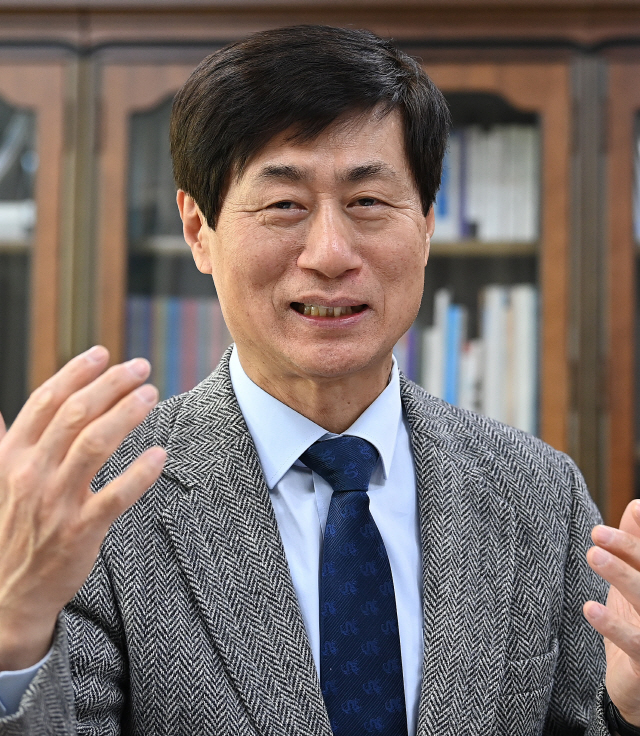
-The amount of government R&D funding is increasing, but the innovative results are not following.
△ In a 2018 report by the Korea Institute of S&T Evaluation and Planning (KISTEP), the technological advancement of the US was set at 100, and they compared it to Korea, China, Japan, and EU. China has reached 76%. However, Japan dropped to 87.9% from 93.4% as measured in 2012. Korea also dropped to 76.9% from 77.8%, even though our R&D funds increased dramatically during this period. The culture, system, and the entire environment must change for ideas to come out. The 18 government ministries must all be oriented to science and technology.
-We need a paradigm shift for better competitive strategies.
△In his book, Oh-hyun Kwon of Samsung Electronics wrote that in Korea, reprimand for failure is more severe than rewarding success. A well-established system for rewarding success is needed for innovation. Yet we are using the same type of business strategy for reducing risks in mass production for national R&D. How can this lead to innovative research? Government-funded research institutes use a blind hiring process and emphasize role and responsibility (R&R), which is understandable, but the regulations need to be loosened. Also, currently, their PBS allows a moderate amount of research funding for a bit of profit, but this needs to change dramatically. Government-funded institutes must become vessels for innovation. So far, Ministry of Economy and Finance have treated and evaluated them like any other public institution. This makes it difficult for innovative ideas to come up. Ministry of Science and ICT have managed to change the rules so that directors of government-funded institutes may maintain their term if they receive the 2nd best or above grade in evaluations. This is a step in the right direction, but not enough.
△ In a 2018 report by the Korea Institute of S&T Evaluation and Planning (KISTEP), the technological advancement of the US was set at 100, and they compared it to Korea, China, Japan, and EU. China has reached 76%. However, Japan dropped to 87.9% from 93.4% as measured in 2012. Korea also dropped to 76.9% from 77.8%, even though our R&D funds increased dramatically during this period. The culture, system, and the entire environment must change for ideas to come out. The 18 government ministries must all be oriented to science and technology.
-We need a paradigm shift for better competitive strategies.
△In his book, Oh-hyun Kwon of Samsung Electronics wrote that in Korea, reprimand for failure is more severe than rewarding success. A well-established system for rewarding success is needed for innovation. Yet we are using the same type of business strategy for reducing risks in mass production for national R&D. How can this lead to innovative research? Government-funded research institutes use a blind hiring process and emphasize role and responsibility (R&R), which is understandable, but the regulations need to be loosened. Also, currently, their PBS allows a moderate amount of research funding for a bit of profit, but this needs to change dramatically. Government-funded institutes must become vessels for innovation. So far, Ministry of Economy and Finance have treated and evaluated them like any other public institution. This makes it difficult for innovative ideas to come up. Ministry of Science and ICT have managed to change the rules so that directors of government-funded institutes may maintain their term if they receive the 2nd best or above grade in evaluations. This is a step in the right direction, but not enough.
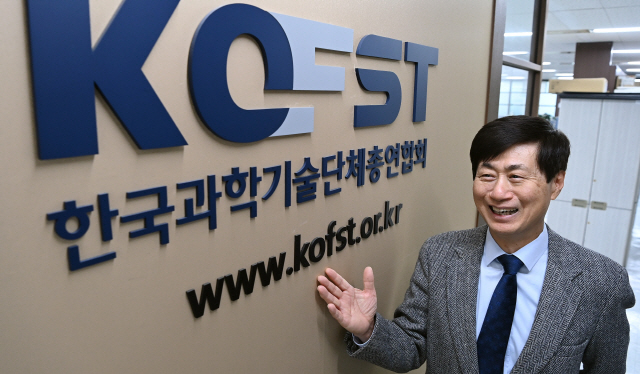
-There are suggestions about introducing a venture capital method in government R&D.
△ A venture capital makes investments so that even if many of them turn out to fail,e place may return 100 times its original investment, doubling the overall rate of return. Innovations should occur like this. The COVID-19 vaccine was also developed this way. Rounding out investments for moderate returns is of course important, but you should not be afraid of failure.
-Do you mean that the government’s approach to science and technology is inadequate?
△ The funding increases each year, for which we are grateful, but the system is inadequate. There is a lack of philosophy. There used to be talks about a science and technology-oriented society, but after the administration changed, everything disappeared. There needs to be a better system and more attention for innovation. But theyly provide money and try to micromanage things without proper attention. Decision-making must be based data. In 1986, the American space shuttle Challenger exploded because the special committee made it a political decision. Nightingale during the Crimean War used data to point out the problem of unhygienic environment, lowering the death rate of soldiers from 42% to 3% in just 5 months.
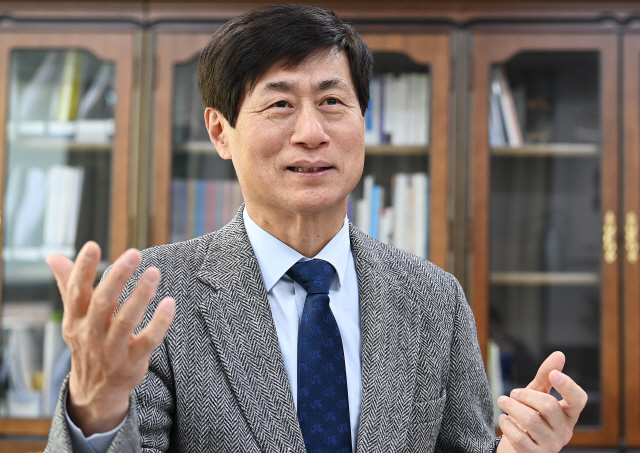
-What are some of the current projects of KOFST?
△ We are trying to increase the confidence and interest of the public in the scientific community. Confucius said “Without faith, there is no standing.” Since the inauguration last February, we hosted 50line forums with individuals from the industry, academia, research, and politics. We have also been communicating with Korean scientists overseas via our 18 international branches. We are hoping to better communicate with the public and raise awareness in young people.
-The scientific community must offer its voice following social changes.
△Just like Professor Jared Diamond of UCLA have said, if we want to turn population decrease into an opportunity, every citizen must be equipped with scientific technology, each with their own specialty. That means we need more education, but math and science matter less and less in university admissions. Universities, to put it frankly, are selling diplomas, but they must change the length of study as well as the curriculum according to each field of study. University tuition has remained the same for 12 years; for money, they have to depend international students who are not as capable. There is also the problem of the lack of people who can teach AI at universities. We should allow people to teach and work at Korean or overseas companies at the same time. Like Singapore, we must take in talented individuals from outside the country. The 4th Industrial Revolution requires more specialization and globalization. Also, for the development of agriculture, the government should actively work to encourage young people to move to rural areas. /Kwang-bon Ko kbgo@sedaily.com /Photo=Seung-hyeon Oh
he is..
Born in Seoul in 1954, Prof. Lee completed his bachelor’s and master’s at SNU Dept. of Mechanical Engineering, and received his Ph.D. at the University of Michigan, USA. After working as a researcher at Stanford University and the Korea Institute of Machinery and Materials, he was appointed as a professor at SNU Dept. of Mechanical Engineering in 1987. He later served as Head of Department, Dean of College of Engineering, and Vice President at SNU. He was the director of the University Industry Technology Force (UNITEF), which consist of 2,500 members who are engineering professors around the country, and worked to connect universities with small and medium-sized enterprises. He is interested in industry-academia cooperation and engineering education reform. He is a member of the Korean Academy of Science and Technology and the National Academy of Engineering of Korea, as well as a fellow of the American Society of Mechanical Engineers (ASME). Currently, he is a professor emeritus at SNU. Since February, he is working as the president of KOFST (term: 3 years), representing around 600 academic societies, public research institutes, and other scientific organizations.
By Kwang-bon Ko, Bio IT kbgo@sedaily.com
Original article : https://www.sedaily.com/NewsView/1ZBRS0AOD9

